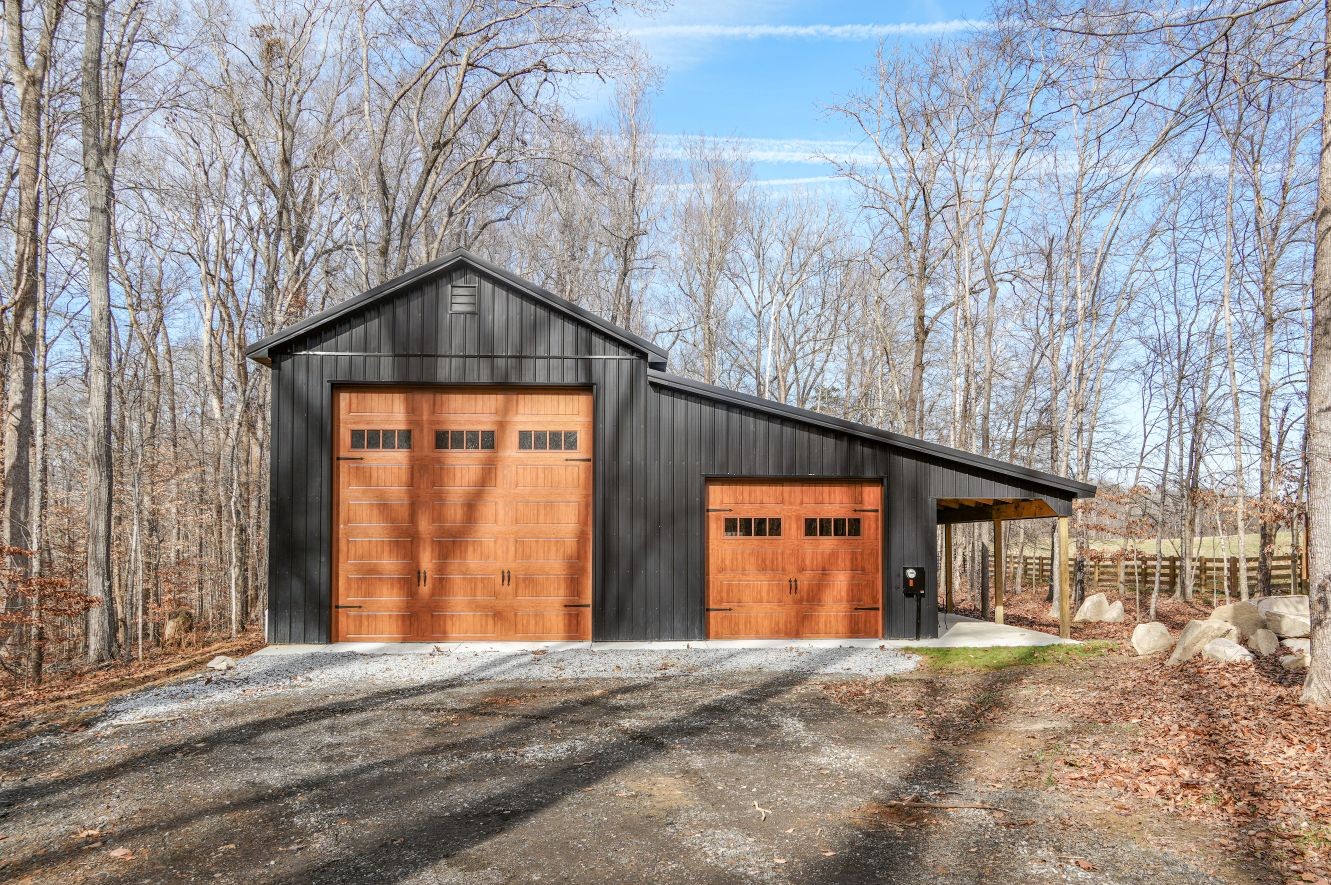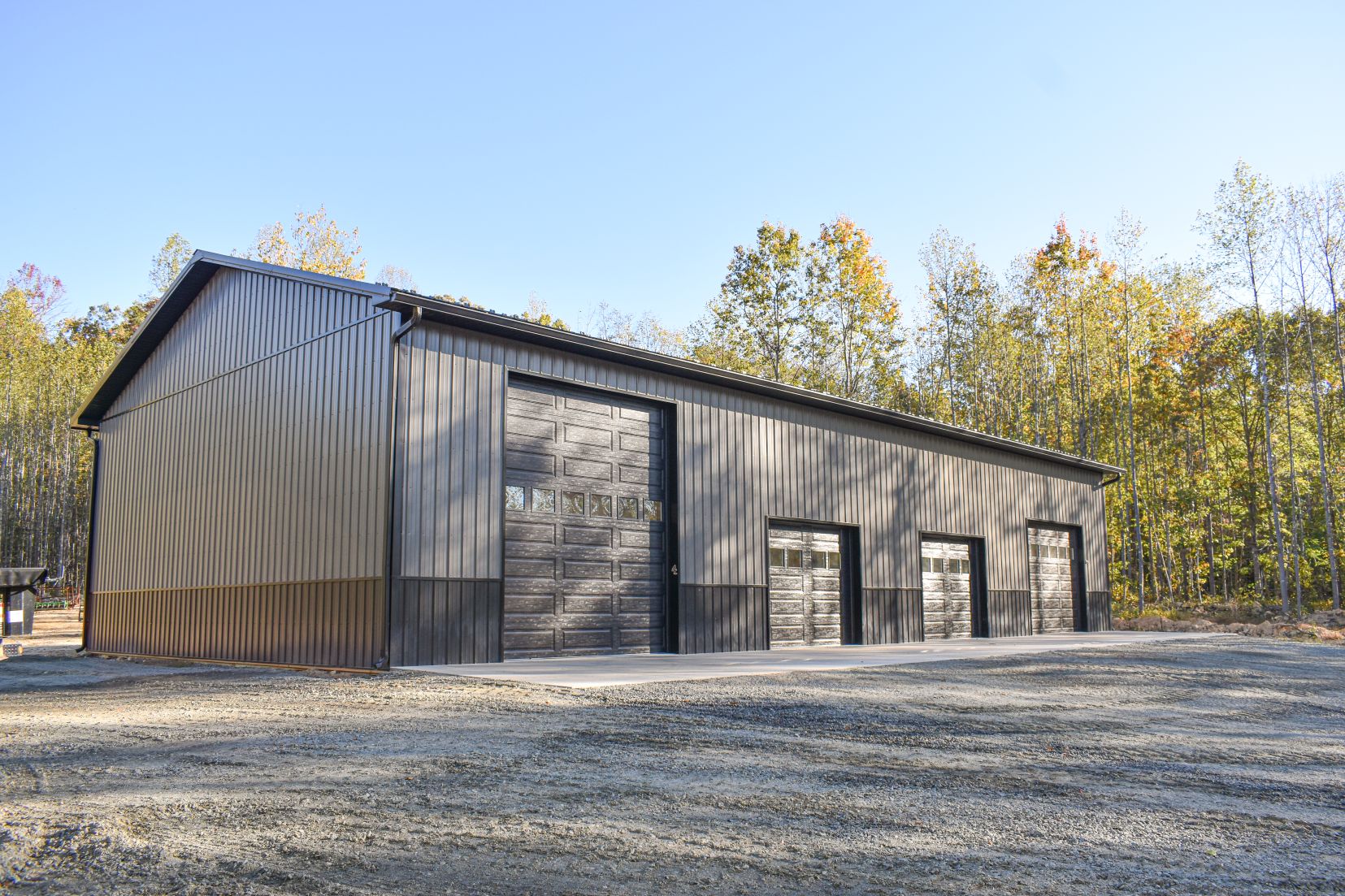Pole Buildings in Lancaster County, PA
Post-frame (aka pole barn) construction is the ideal solution for garages, horse barns, and many other structures. Pole barns are more affordable than stick-frame buildings, since there is no traditional foundation required. Post-frame structures are also durable, functional, and stylish.
At Superior Buildings, we can bring your vision to life. Our buildings are completely custom, so you can choose a design that fits your unique wants and needs. We can copy an existing building, recreate a set of plans you find on Pinterest, or start from scratch with an idea you dream up. Our gallery is also full of past projects that you can use as inspiration.
As general building contractors, we offer more than just building construction. We can also apply for any necessary permits, pour the concrete floor, and more. Our goal is to deliver your pole barn with as little hassle as possible.
Lancaster Roots
Our founder, Nate King, grew up on an Amish dairy farm in Gordonville, Pennsylvania. He started building pole barns in 2001, travelling throughout Pennsylvania and the surrounding states.
Today, Nate runs the Superior Buildings office in Harrisonburg, Virginia, but he still travels to Lancaster regularly. We also have a salesman located in Lititz, who handles all of our Pennsylvania projects.
Contracting with Superior Buildings
At Superior Buildings, we offer a variety of post-frame projects. Our residential buildings range from small garages and workshops to custom barndominiums. We also offer horse barns, agricultural buildings, and commercial pole barns.
About Lancaster County
Lancaster County, Pennsylvania, is located in the southeastern part of the state and is renowned for its rolling farmlands, historic towns, and vibrant Amish community. Established in 1729, the county has a rich cultural heritage shaped by German, Swiss, and English settlers. It's home to one of the largest Amish populations in the United States, making it a popular destination for visitors interested in traditional crafts, farming techniques, and horse-drawn buggies.
The county seat, Lancaster City, blends historical charm with modern attractions. It features landmarks like Central Market, one of the oldest continuously operating farmers’ markets in the country, and the Fulton Theatre, a National Historic Landmark. The city has a growing arts scene, with galleries, shops, and a variety of dining options.
Agriculture is a key part of Lancaster County's economy, known for its dairy farms, tobacco, corn, and other crops. The area also supports tourism through farm-to-table dining experiences, countryside bed-and-breakfasts, and guided tours highlighting local crafts and Amish culture.
Beyond its rural appeal, Lancaster County is increasingly known for its diverse and growing population, with a blend of cultures that add to the richness of the community. Whether exploring the scenic countryside or diving into its history and traditions, Lancaster offers a unique mix of rural life and small-town charm, attracting both tourists and residents alike.






















